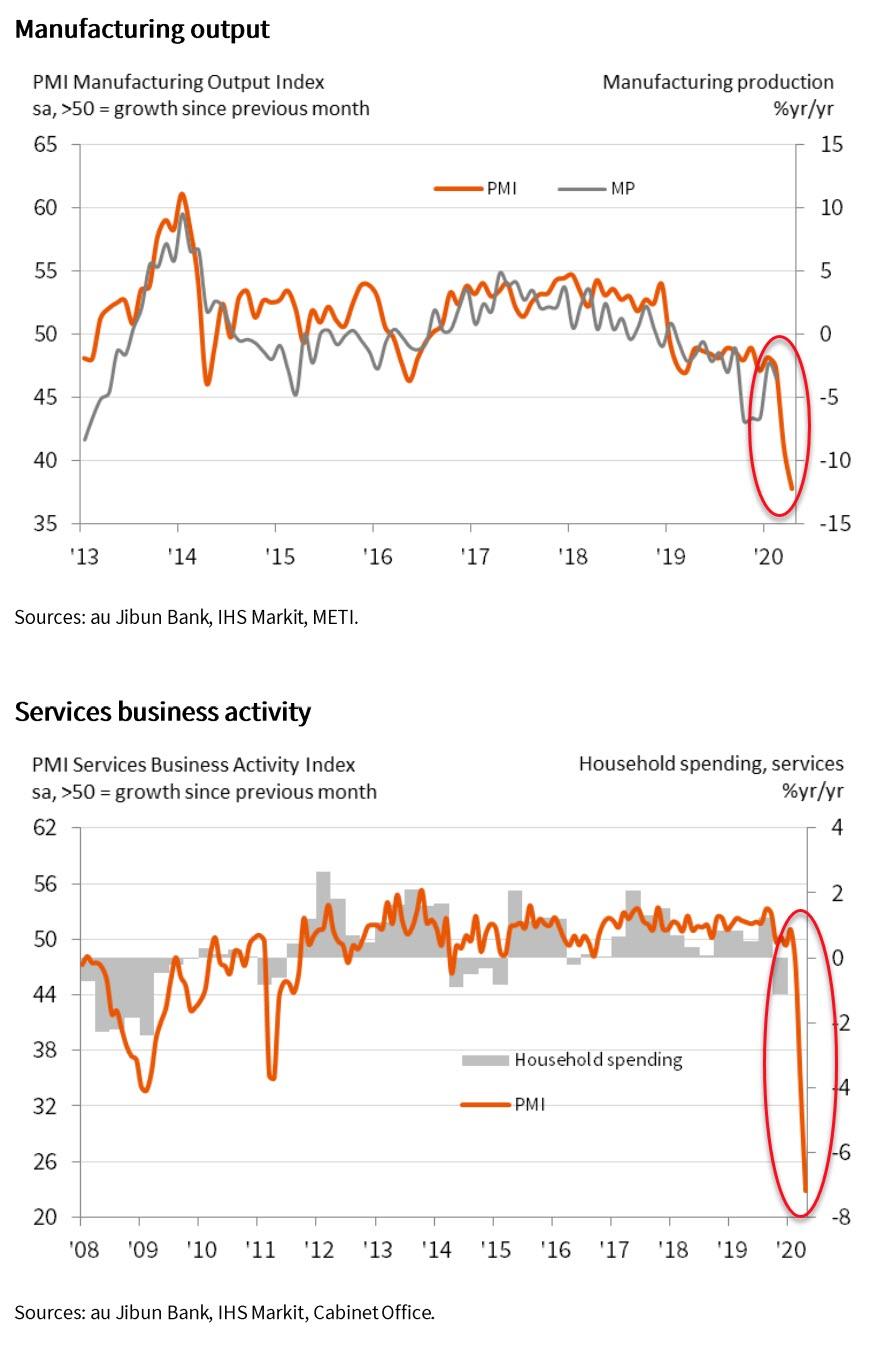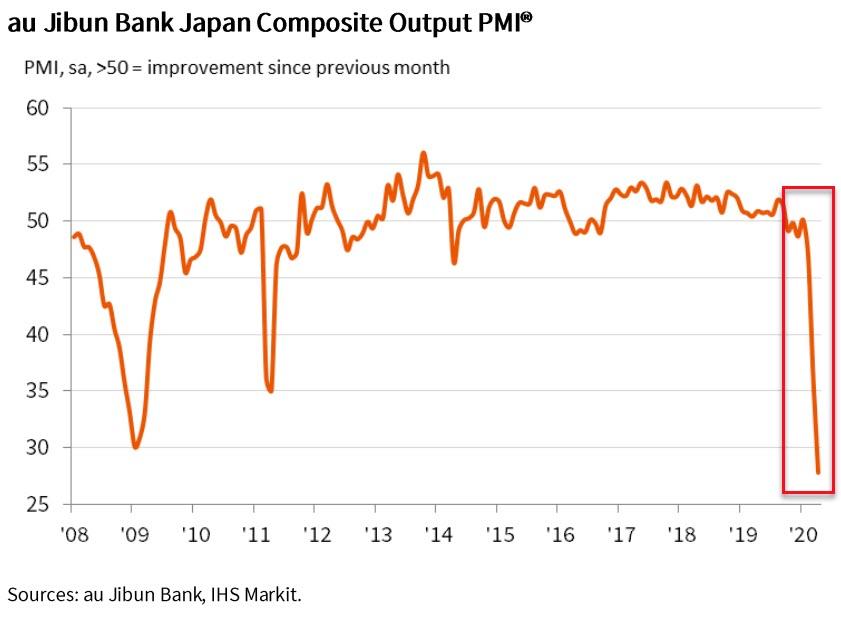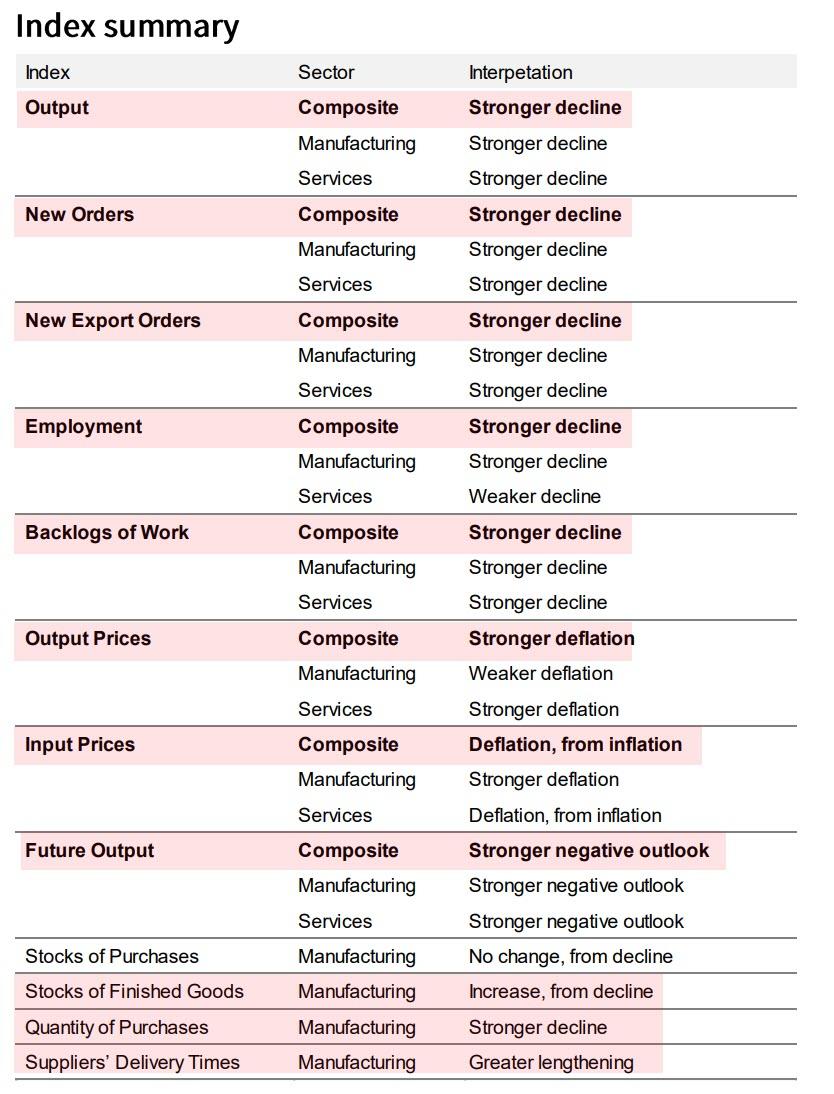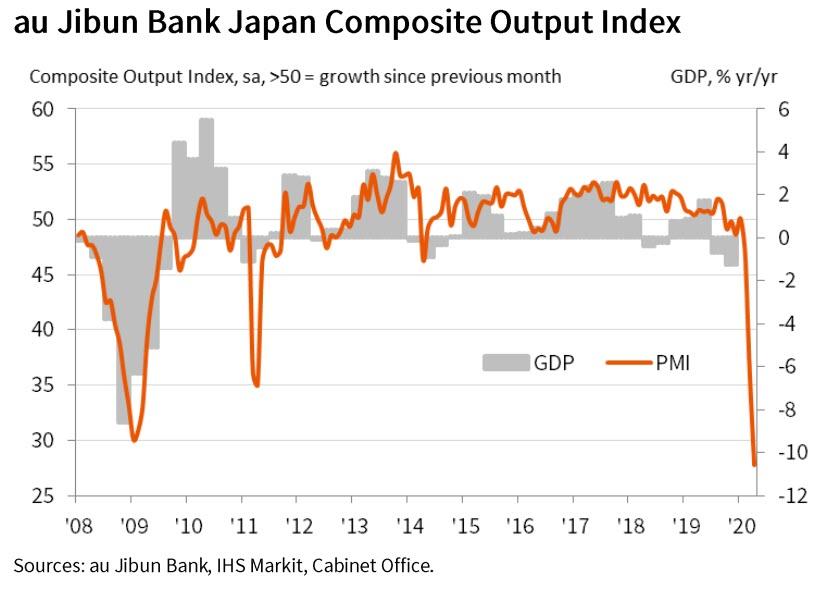Japanese PMI Collapses To Record Low, Signals 10% Crash In GDP
After China’s ugliest GDP print ever, and the collapse of US economic surprise index data, it should be no real surprise that Japan’s manufacturing and services industry PMIs would plunge (despite the “everything’s fine, the Olympics is imminent” narrative puked forth by the government for most of the month).
But, to crash to record lows is something else…
-
Japan’s April flash manufacturing purchasing managers’ index falls to 43.7 from 44.8 in March – Lowest reading since April 2009
-
Japan’s April flash services purchasing managers’ index falls to 22.8 from 33.8 in March – Lowest reading since series began
Which combined to leave Japan’s April flash composite purchasing managers’ index plunging to to 27.8 from 36.2 in March – the lowest reading since records began.
Across the indices everything was a disaster…
Commenting on the latest survey results, Joe Hayes, Economist at IHS Markit, said:
“PMI data for Japan tell us that the crippling economic impact from the global corona virus pandemic intensified in April. Furthermore, the data show us the initial impact of Japan’s lockdown. The survey was conducted between 7 and 21 April The 7th was the day Prime Minister Abe announced a state of emergency in some parts of Japan, although this was upgraded to a nationwide state of emergency on the 16th and extended the lockdown to the whole country. “
“The decline in combined output across both manufacturing and services was the strongest ever recorded by the survey in almost 13 years of data collection, surpassing declines seen during the global financial crisis and in the aftermath of the 2011 tsunami.”
Overall, GDP looks set to decline at an annual rate in excess of 10% in the second quarter…
And it is not about to get better anytime soon:
“The current state of emergency will stay in place until 6May, although given Japan’s lagged response relative to other parts of the world, one would expect this to be extended, meaning the harsh economic effects are likely to drag out further.”
Tyler Durden
Wed, 04/22/2020 – 20:47



